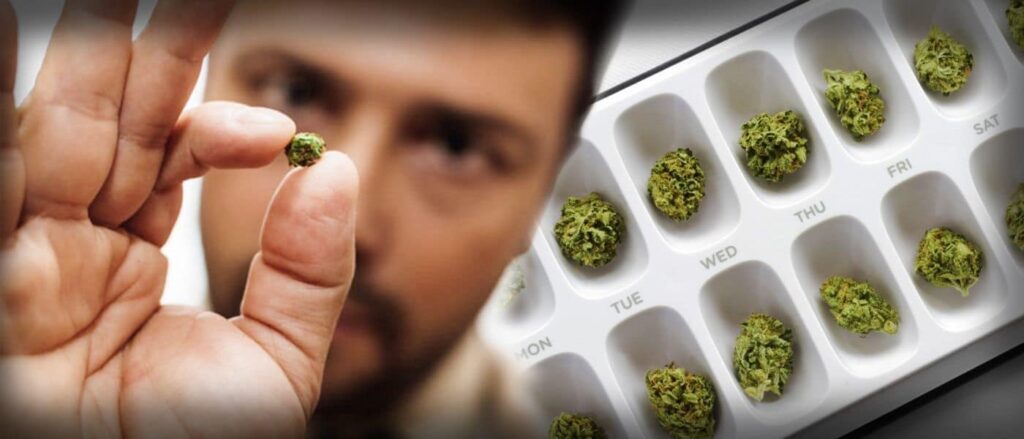CBD (cannabidiol) and THC (tetrahydrocannabinol) are two of the most well-known cannabinoids found in cannabis plants. While both compounds have gained significant attention for their potential therapeutic properties, they differ in their effects on the body and mind. One of the most common questions people have is whether CBD is psychoactive like THC. In this comprehensive guide, we will explore the key differences between CBD and THC, their interactions with the body’s endocannabinoid system, potential health benefits, and whether CBD is psychoactive.
Understanding the Endocannabinoid System
Before delving into the differences between CBD and THC, it is essential to understand the endocannabinoid system (ECS). The ECS is a complex network of receptors, endocannabinoids (cannabinoids produced naturally by the body), and enzymes that play a vital role in regulating various physiological processes, including pain perception, mood, immune function, and more. The ECS helps maintain balance and harmony within the body, promoting overall health and well-being.
THC: The Psychoactive Compound
THC is the primary psychoactive compound found in cannabis. When THC enters the body, it binds to the CB1 receptors in the brain and central nervous system, producing the euphoric “high” associated with marijuana use. The activation of CB1 receptors by THC leads to altered perception, changes in mood, and impairment of cognitive and motor functions.
The psychoactive effects of THC are one of the primary reasons for its recreational use, but they can also lead to potential negative side effects, such as anxiety, paranoia, and impaired memory.
CBD: The Non-Psychoactive Compound
Unlike THC, CBD is non-psychoactive and does not produce a “high” or altered mental state. When CBD interacts with the ECS, it does not directly bind to CB1 receptors in the brain. Instead, it may influence the ECS in other ways, such as enhancing the effects of endocannabinoids or interacting with other receptors and pathways.
CBD’s non-psychoactive nature makes it an appealing option for individuals seeking potential therapeutic benefits without experiencing intoxication or impairment.
The Key Differences Between CBD and THC
CBD and THC have several key differences that influence their effects on the body and mind. Some of the most significant differences include:
- Psychoactivity: As mentioned earlier, THC is psychoactive and produces a euphoric “high,” while CBD is non-psychoactive and does not cause any intoxication.
- Legal Status: Due to its psychoactive nature, THC is subject to strict regulations in many regions. On the other hand, CBD with non-detectable THC levels (0.3% or less) is often considered legal, making it more widely accessible.
- Side Effects: THC is more likely to cause negative side effects such as anxiety, paranoia, and impaired memory, especially in higher doses. CBD, on the other hand, generally has a favorable safety profile with few reported adverse effects.
- Potential Therapeutic Properties: Both CBD and THC have been the subject of research for their potential therapeutic properties. However, CBD’s benefits are more widely explored and established due to its non-psychoactive nature.
- Drug Testing: Regular use of THC-containing products can lead to positive drug tests for cannabis. In contrast, CBD products with non-detectable THC levels are less likely to result in positive drug tests.
- Tolerance and Addiction Potential: THC is known to cause tolerance, where higher doses are needed to achieve the same effects. It also has a higher potential for addiction. CBD, on the other hand, is not associated with tolerance or addiction.
Potential Therapeutic Benefits of CBD and THC
Both CBD and THC have shown promise in addressing various health conditions. Some potential therapeutic benefits of each compound include:
CBD
- Pain Relief: CBD may help manage pain and inflammation, making it potentially useful for conditions like arthritis and chronic pain.
- Anxiety Reduction: CBD has been studied for its anxiolytic properties and its potential to reduce stress and anxiety in certain individuals.
- Neuroprotective Effects: CBD’s neuroprotective properties may offer benefits for conditions like epilepsy and neurodegenerative disorders.
- Sleep Improvement: Some users report improved sleep quality and reduced insomnia symptoms with the use of CBD.
- Anti-Inflammatory: CBD has demonstrated anti-inflammatory effects, which may be beneficial for various inflammatory conditions.
THC
- Pain Relief: THC’s interaction with the ECS may help manage pain and reduce discomfort associated with various conditions.
- Appetite Stimulation: THC is known to stimulate appetite, making it potentially beneficial for individuals with appetite-related issues.
- Nausea Reduction: THC has been studied for its potential to reduce nausea and vomiting, making it useful for individuals undergoing chemotherapy or dealing with other causes of nausea.
- Muscle Relaxation: THC may have muscle-relaxant properties, offering potential benefits for muscle spasms and tension.
- Neurological Conditions: Some studies suggest that THC may offer benefits for certain neurological conditions, such as multiple sclerosis and Parkinson’s disease.
Combining CBD and THC: The Entourage Effect
When CBD and THC are consumed together, they may interact synergistically to enhance each other’s effects. This phenomenon is known as the “entourage effect.” Some researchers believe that the entourage effect allows for a more comprehensive and balanced therapeutic experience, as various cannabinoids and compounds work together harmoniously.
The entourage effect has led to the development of products that combine CBD and THC in specific ratios, aiming to maximize the potential benefits of both cannabinoids.
Conclusion
CBD and THC are two of the most prominent cannabinoids found in cannabis plants, and they differ significantly in their effects on the body and mind. THC is psychoactive and produces the euphoric “high” associated with marijuana use, while CBD is non-psychoactive and does not cause any intoxication.Both CBD and THC have potential therapeutic properties, and researchers continue to explore their applications in various health conditions. While THC’s psychoactive nature may not be suitable for everyone, CBD’s non-psychoactive nature has made it an appealing option for those seeking potential health benefits without the risk of intoxication.
As with any supplement or wellness product, it is essential to prioritize safety, quality, and informed decision-making when choosing CBD or THC products. Always consult with a healthcare professional before incorporating cannabinoids into your wellness routine, especially if you have specific health concerns or are taking medications.In conclusion, CBD and THC offer unique benefits, and understanding their differences allows individuals to make informed choices based on their specific needs and preferences.
Monika Wassermann is a doctor and a freelance writer based in the UK who lives with her cat Buddy. She writes across several verticals, including life, health, sex and love, relationships and fitness. Her three great loves are Victorian novels, Lebanese cuisine, and vintage markets. When she’s not writing, you can find her trying to meditate more, weightlifting, or wandering around in town.
[email protected]
- Is CBD Psychoactive? The Big Differences Between CBD & Thc - September 25, 2023
- Is CBD Better Than Delta-8 Thc? - September 25, 2023
- Benefits of Chamomile Supplements - September 25, 2023











